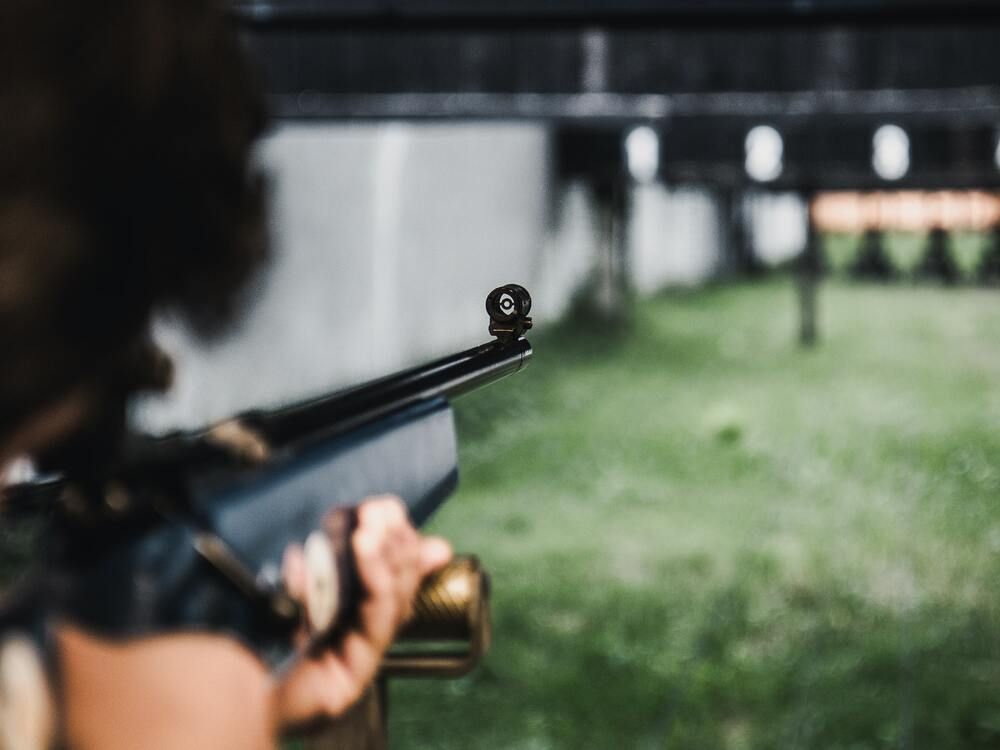Politics
Canada’s Gun Buyback Program Faces Calls for Termination

As Canada prepares for its upcoming federal budget, calls are intensifying for the government to abolish the controversial gun buyback program initiated during the Trudeau administration. Critics argue that the program is an unnecessary expenditure that could save taxpayers millions of dollars and question its effectiveness in enhancing public safety.
The gun buyback initiative, which aims to confiscate certain firearms classified as “assault-style weapons,” was implemented in 2020 when Prime Minister Justin Trudeau announced an immediate ban. This legislation made it illegal for federally licensed gun owners to buy, sell, transport, import, or use a wide range of firearms previously deemed legal. The ban primarily targets semi-automatic rifles and shotguns that have been used safely by hunters and sport shooters for more than a century.
Despite the initial promise of “fair compensation,” the government has yet to provide concrete plans for the confiscation process or the associated costs. With the amnesty period for compliance set to expire on October 30, 2023, many are questioning the preparedness of the government to implement this program effectively.
Opposition from various stakeholders is mounting. The provincial governments of Ontario and Saskatchewan have publicly expressed their refusal to participate. Ontario’s solicitor general highlights that over 90 percent of guns used in crimes within the province are illegally imported from the United States, rendering the buyback program ineffective in addressing the root of gun violence. Instead, critics argue that the initiative diverts essential resources away from policing and monitoring illegal firearms.
The National Police Federation, representing approximately 20,000 members of the Royal Canadian Mounted Police (RCMP), has also voiced its concern. The organization described the buyback program as a “misdirected effort when it comes to public safety.” The logistical challenges associated with the program further complicate its implementation. For instance, Canada Post has expressed reluctance to handle the storage and transportation of firearms, fearing potential conflicts with gun owners and safety issues related to storing weapons in postal facilities.
Research indicates that Canadian gun owners are statistically less likely to commit violent crimes compared to the general population. Data from 2000 to 2020 show that an average of just 12 Possession and Acquisition Licence (PAL) holders per year were accused of homicide, while there are approximately two million PAL holders in Canada. The homicide rate among these licensed individuals stands at 0.63 per 100,000, slightly lower than the overall Canadian rate of 0.72 per 100,000.
Even within the government, doubts about the program’s viability are emerging. Gary Anandasangaree, Canada’s Minister of Public Safety, has suggested that municipal police services may lack the necessary resources to execute the buyback effectively, implying that the initiative may be driven more by political considerations than sound policy.
The financial implications of the gun buyback program are significant. When it was first introduced, the Trudeau government estimated the cost of compensating firearms owners at $200 million. A year later, the Parliamentary Budget Office projected that compensation costs could escalate to $756 million. Most recently, the federal government indicated that administrative costs related to the program could amount to $1.8 billion. Some experts, however, believe that the total cost could reach as high as $6 billion based on a similar program implemented in New Zealand.
As it stands, the program has only managed to collect 12,195 firearms to date, a stark contrast to the projected costs incurred. By 2024, it had already expended $67.2 million without seizing a single weapon. Projections indicate that the program will cost $459.8 million in the fiscal year 2025-26 alone, primarily for public opinion surveys and logistical planning.
In summary, the federal government’s gun buyback program faces mounting criticism for its high costs and questionable effectiveness in enhancing public safety. As the Carney government prepares for its budget, the initiative presents a clear opportunity to reconsider its financial priorities. If the objective is to eliminate waste, abolishing the buyback program could be a significant step forward.
-

 Politics4 weeks ago
Politics4 weeks agoSecwepemc First Nation Seeks Aboriginal Title Over Kamloops Area
-

 World5 months ago
World5 months agoScientists Unearth Ancient Antarctic Ice to Unlock Climate Secrets
-

 Entertainment5 months ago
Entertainment5 months agoTrump and McCormick to Announce $70 Billion Energy Investments
-

 Science5 months ago
Science5 months agoFour Astronauts Return to Earth After International Space Station Mission
-

 Lifestyle5 months ago
Lifestyle5 months agoTransLink Launches Food Truck Program to Boost Revenue in Vancouver
-

 Technology3 months ago
Technology3 months agoApple Notes Enhances Functionality with Markdown Support in macOS 26
-

 Lifestyle3 months ago
Lifestyle3 months agoManitoba’s Burger Champion Shines Again Amid Dining Innovations
-

 Top Stories2 months ago
Top Stories2 months agoUrgent Update: Fatal Crash on Highway 99 Claims Life of Pitt Meadows Man
-

 Politics4 months ago
Politics4 months agoUkrainian Tennis Star Elina Svitolina Faces Death Threats Online
-

 Sports5 months ago
Sports5 months agoSearch Underway for Missing Hunter Amid Hokkaido Bear Emergency
-

 Politics5 months ago
Politics5 months agoCarney Engages First Nations Leaders at Development Law Summit
-

 Technology5 months ago
Technology5 months agoFrosthaven Launches Early Access on July 31, 2025




















